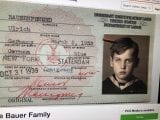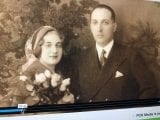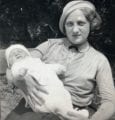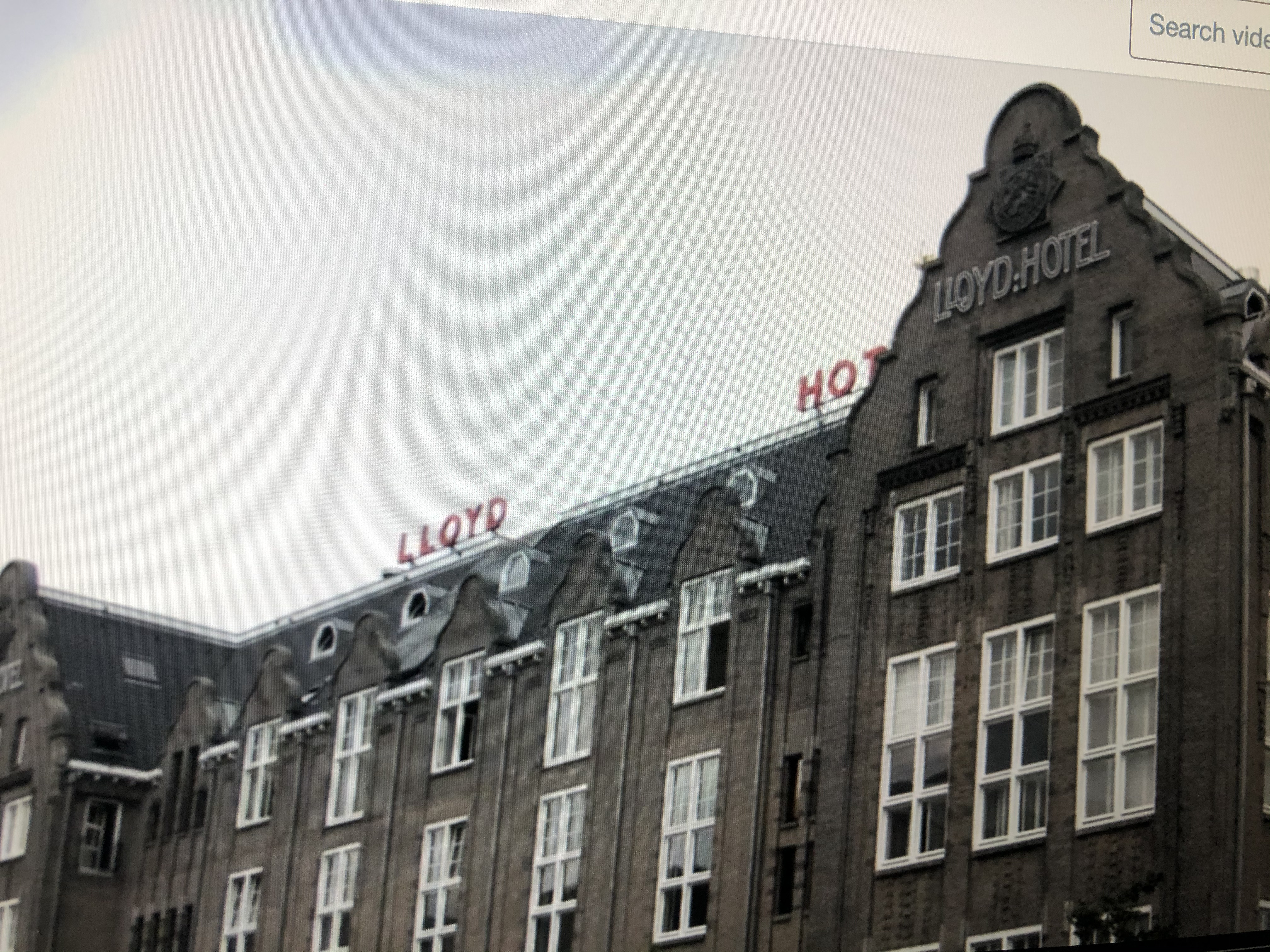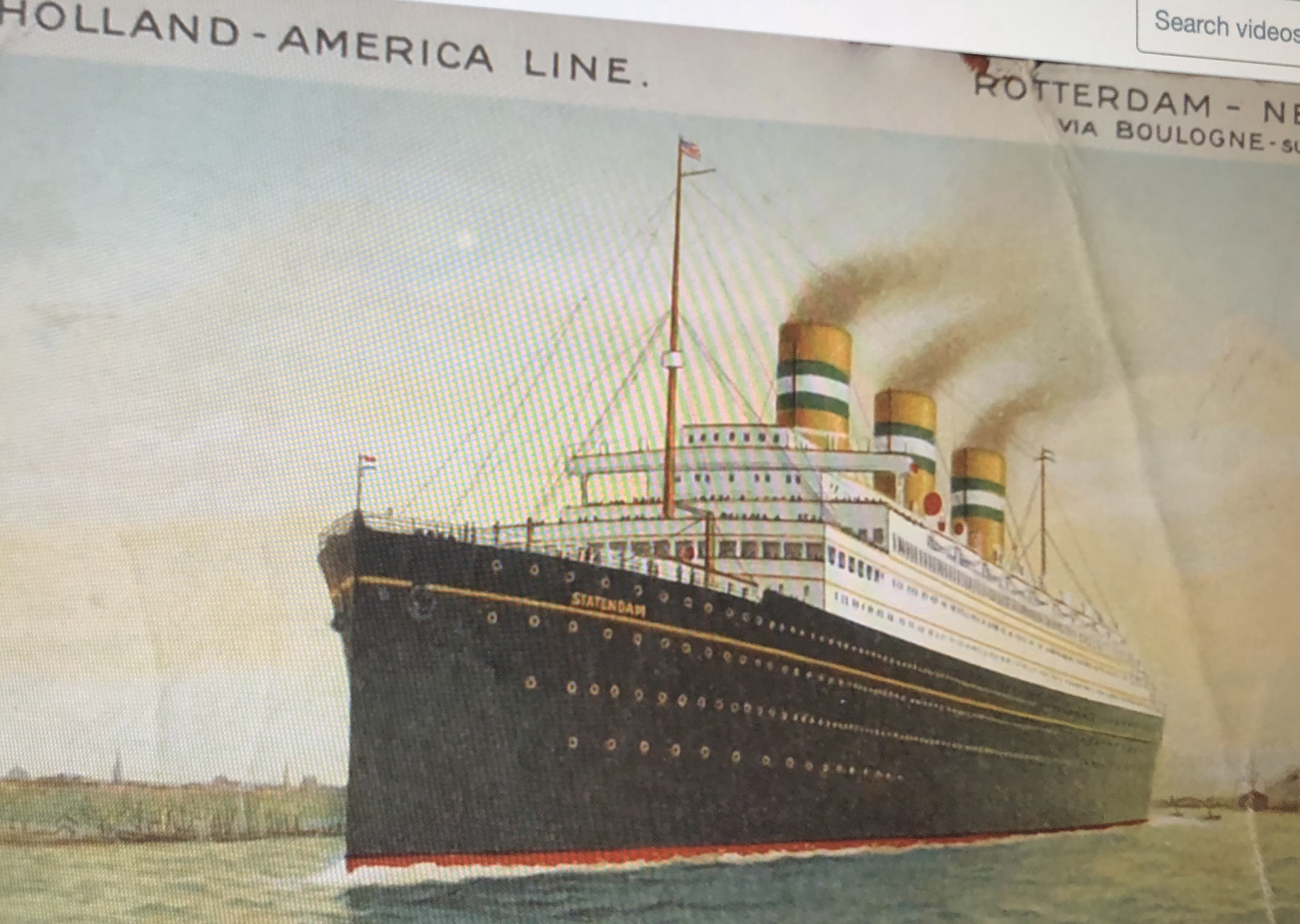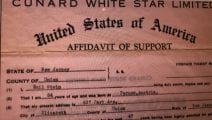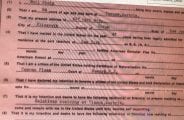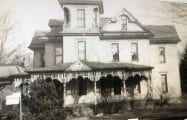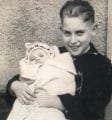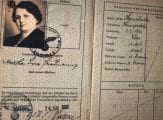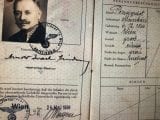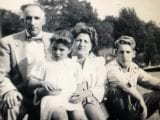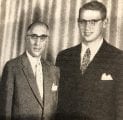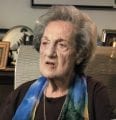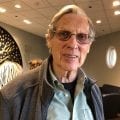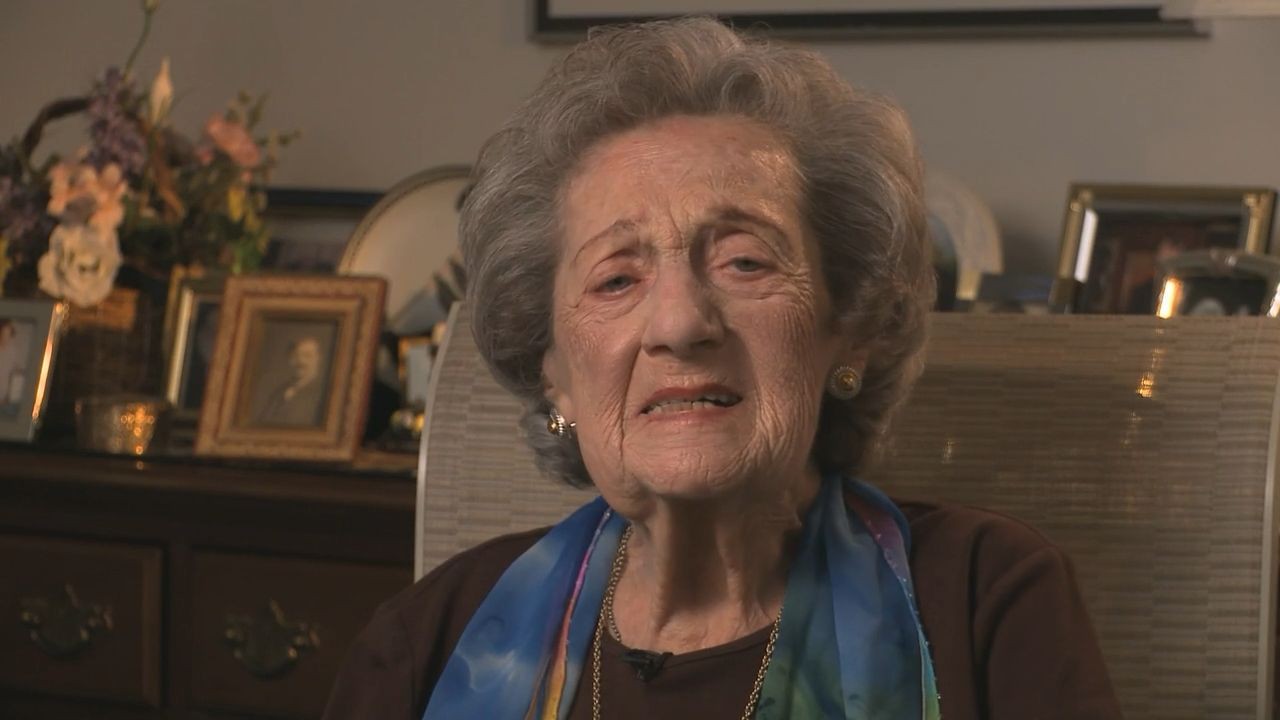- Local Survivor registry
- ULRICH BAUER
- Local Survivor registry
- ULRICH BAUER
Survivor Profile
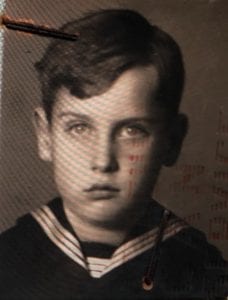
ULRICH
BAUER
(1933-PRESENT)
PRE-WAR NAME:
ULRICH BAUERNFREUND
ULRICH BAUERNFREUND
PLACE OF BIRTH:
VIENNA, AUSTRIA
VIENNA, AUSTRIA
DATE OF BIRTH:
MARCH 2, 1933
MARCH 2, 1933
LOCATION(s) BEFORE THE WAR:
VIENNA, AUSTRIA; ; LLOYD HOTEL FOR REFUGEES , HOLLAND
VIENNA, AUSTRIA; ; LLOYD HOTEL FOR REFUGEES , HOLLAND
LOCATION(s) DURING THE WAR:
USA (OCTOBER 1939)
USA (OCTOBER 1939)
STATUS:
CHILD SURVIVOR, REFUGEE
CHILD SURVIVOR, REFUGEE
RELATED PERSON(S):
RUTH CHARLOTTE BAUER - Spouse (Deceased),
GRETE FRIEDMANN BAUER - Mother (Deceased),
PAUL BAUERNFREUND - Father,
SUZANNE BAUER SISTER ,
ALAN BAUER - Son,
DANIEL BAUER - Son,
ANDREW BAUER - Son,
MARTHA FRIEDMANN - Grandmother (Deceased),
ARNOLD ISRAEL FRIEDMANN - Grandfather (Deceased),
HEINZ HERLING - Cousin,
SUSAN BROWN - Wife
-
BIOGRAPHY BY NANCY GORRELL
Ulrich Bauer was born on March 5, 1933 in Vienna, Austria in a time of “turmoil” with the rise of the Austrian Hitler in Germany. He grew up in a “well to do” apartment with his parents, Grete and Paul Bauernfreund, in the building his maternal grandfather owned. His grandfather, Arnold Friedmann, was a self-made man involved in politics. He always wanted his daughter to marry a doctor, and Grete did when she married Paul on April 19, 1932. Ulrich as a young boy often played with his cousin Heinz, seven years older, who recalls this with joy in his testimony on the video Live to Tell: The Bauer Family by Dan Bauer, son. Ulrich recalls little of his early childhood but has a vivid memory of hiding with his mother in a field during Kristallnacht. Grete testifies to the “knock” on the door when they came for Paul and took him to Buchenwald before Kristallnacht. He was among the first to be arrested as a Jewish doctor along with the Jewish intellectuals and lawyers. Grete negotiated for his release with the authorities. He was released six months later and the family was given two weeks to leave Austria. According to Grete’s testimony, they chose to go to Holland because it was a neutral country and they didn’t think Hitler would attack the Dutch. Only one Jewish family unit could go to Holland. The authorities chose the Paul Bauer’s family because he was a doctor. Grete’s sister, Stella’s family did not get to leave. In Holland Ulrich’s family found safe haven in the Lloyd Refugee hotel (refer to photo in Related Media) where they resided until Oct 1939 when they received affadavits of support from distant relatives they never had met in the United States, the Steins (refer to historic documents in Related Media). “It was a miracle” Grete says in her testimony.
They arrived in Hoboken, NJ after a rough voyage in steerage on Oct. 31, 1939. Grete testifies how unexpected and indescribable it was to see children “begging” for candy. She also testifies how they “left in steerage to be met by a chauffeur in a limo.” The Stein’s helped them settle in an apartment on the upper westside of Manhattan. Grete, a skilled dressmaker, supported the family while Paul studied English to pass the Medical Boards to get his license. Ulrich, age six began English school. “Everyone no matter the age was put in English school.” After two years in Manhattan, the Bauer family moved to Cambridge as Ulrich’s father was offered a staff position at the Washingtonian Hospital for alcoholism. When his New York State license finally came, the family moved to a small village in Chautauqua county New York, Brocton, population 1300. This town was to become their family home in American. Ulrich finished grade school and high school in Brocton. They were the only Jewish family in the small village. They never spoke about their past lives. Ulrich excelled at school and was on the honor roll. His Bar Mitzvah was in Manhattan at an Austrian synagogue with his parents friends. They travelled 500 miles for the event. Ulrich went to the University of Buffalo as an undergraduate. He attended medical school abroad in Basel, Switzerland where he met his wife, Ruth Charlotte and they have three sons. Upon returning to the States, he enlisted in the United States Army at the suggestion of a friend to make money. He had a long service in the Army hospital corps serving first a 15 year term until 1968 just missing service in Vietnam. Then he was back in service for terms in Saudi Arabia in the 1990s. In total he served 25 years in the Army, retiring with a rank of colonel. He maintained a private practice in the States as well as a growing family. In 2004 Ruth passed after a long illness. Two years later he met Susan Brown. Ulrich retired from his medical practice and moved to Colorado Springs with Susan. They’ve been together ever since. In Ulrich’s interview, Susan Brown-Bauer (present at the interview) recalls that at Ulie’s class reunion,” not one of his classmates knew he was an survivor or his background.” His story was completely unknown to them. Fortunately, this is no longer the case as the Bauer family story has been preserved in Live to Tell: The Bauer Family.
Editor’s Note:
Refer to video Live to Tell: The Bauer Family in Related Media and Gallery (website toolbar)
-
SURVIVOR INTERVIEW WITH ULRICH BAUER
INTERVIEW WITH ULRICH BAUER, CHILD SURVIVOR, REFUGEE
INTERVIEWER: NANCY GORRELL
DATE: APRIL 19, 2021
LOCATION: HOLOCAUST MEMORIAL AND EDUCATION CENTER
Q: What was your earliest memory?
I was born in Vienna at a time of turmoil. You have to remember, Hitler was Austrian. My birthday is March 5, 1933. I really don’t remember much. But somethings I do. I remember 1938. The Germans didn’t just walk into Austria. Adolph was back and the Austrians just put on their Nazi uniforms. They were wearing them everywhere.Q: What else do you recall?
I remember Jews were not allowed to watch—only through closed curtains. We weren’t allowed to lookout. Jews at that time couldn’t do anything. No schools, no businesses. We were living with my mother’s parents.Q: Do you remember Kristallnacht?
I remember my mother fled with me and we hid in a field. Later, we returned to our apartment. My father’s office was in the same building and the building belonged to my grandfather. We were allowed to stay there.Q: Where was your father?
My father was already in Buchenwald. He was in the first group of Jewish intellectuals, doctors and lawyers that were picked up and sent to Buchenwald. My mother talked to the authorities about getting him out because he was a distinguished doctor.Q: Do you recall seeing “broken glass” or destruction?
No, I don’t remember seeing any damage.Q: Describe your memories of your grandfather and your apartment.
My mother’s father was a very well to do man. He was self-made and he owned the building we lived in. He was political and involved in politics. He always wanted his daughter to marry a doctor, and so she did. My father was a doctor when he married my mother on April 19, 1932. I became a doctor too.Q: What happened next?
I don’t remember very much, but one day my father returned from Buchenwald and we had two weeks to leave Austria. My family moved to Holland and we stayed in the Lloyd Refugee Hotel. I do remember going to school there. We were there about six months.Q: What do you remember about school in Holland?
I learned to speak Dutch. I was bilingual at the time I came to the USA. I have no memories of the hotel itself. I remember arriving in New York speaking German and Dutch.Q: Do you have memories of the voyage over to America?
Oh yes. It was October 1939. We were in steerage. The north Atlantic was rough and we were all seasick. It was a long voyage, maybe a week. There was a German pilot on the ship to help us navigate through the mined waters. We were not allowed to port in England to take on more passengers.Q: Describe your arrival in America.
We arrived in steerage and were picked up by a chauffeur in a limo on October 31, 1939. It was Halloween. We were only able to come to America because of distant relatives we never knew on my mother’s side agreed to sponsor us—the Steins—with affidavits. We landed in Hoboken, New Jersey.Q: Where did you first live upon arrival?
We lived for two years on the upper westside of Manhattan in a brownstone. Maybe 96th street. I’m not sure. My mother found a job as a dressmaker. My father was trying to study for medical boards while learning English.Q: What was school like for you in America?
Everyone was put into a learn English class. It didn’t matter your age. You spent the day learning to speak English.Q: Did you experience any anti-Semitism at the time?
Yes. I remember when I was in second grade remarks made by the super in our apartment. He was German. He said: “We’ll have those British defeated in six weeks (it was 1940).” I went to the principal and complained. Happened in Manhattan.Q: What happened after two years in Manhattan?
We moved. My father failed the medical exam once. He said he would never be able to learn English well enough to pass it, so he decided to go to Cambridge when he was offered a job as a staff physician at the Washingtonian hospital for alcoholism. Harvard was like a military base at the time. It was the height of the war. Then my father’s New York State medical license came. And we moved again.Q: Where did you finally settle?
We moved in 1943 to a small village in Brocton, New York (population 1300) in Chautauqau County southwest of Buffalo. The town hadn’t had a doctor in two years and my father became their doctor. The town had no Jews. We were the only family, and there was no synagogue. I was in 6th grade at the time.Q: What was Brocton like?
We settled right in. We never talked about the past. I don’t think anyone knew we were survivors or our history. I was blue-eyed and blonde. So was my mother. I don’t think they knew we were Jewish.Q: Were you Bar Mitzvahed?
My Bar Mitzvah was in the congregation of Austrian Jews in Manhattan. We traveled 500 miles for it. It was in German and Hebrew. My parents’ friends were all in Manhattan. Nobody in the village knew about our background.Q: When was your family name changed?
That happened in Boston. They said, “Your name is too long. You’re going to be called Dr. Bauer.” My father changed it officially 1947. They were call him Dr. Paul in Brocton.Q: Do you think this reflected anti-Semitism and anti-German sentiment during the war?
Most likely.Q: What were your high school years like in Brocton?
Unremarkable. It was a very quiet little village. I was on the honor roll. I went to college at the University of Buffalo after I graduated to study medicine. In college one of my professor’s asked “why are all Jews communists?”Q: What was your post graduate life like?
I went to medical school in Basel, Switzerland. That’s where I met my wife, Ruth Charlotte. We married in 1956 and we had three sons upon returning to the states. When I started my residency after medical school, a friend suggested enlisting in the Army forces to make money.Q: Describe your military service years.
I enlisted and served for 15 years in a hospital unit until 1968. I just missed serving in Vietnam. I was discharged a captain. Fifteen years later they came back for me. I enlisted in the Medical Corps for 25 years. By the end I was working in public health during the Aids Crisis. By 1990, I was with the New York Army National Guard when Bush called up the Guard, I found myself called to duty by public radio to go to Saudi Arabia. I was there until May of 1991. I had to leave my private practice. I was finally discharged with the rank of Colonel.Q: When did your wife, Ruth, pass?
Ruth passed sadly in 2004. She was very ill for some time. In 2006 I met Susan Brown. I decided retire and close my office in Buffalo. I moved to Colorado Springs with Susan and we’ve been together ever since. Susan Brown is now Susan Brown-Bauer.Q: Did you return to New Jersey?
Yes. We eventually moved back to New Jersey and I started working for an allergy group in Highland Park. I finally retired at the age 83. -
Sources and Credits:
Credits:
SSBJCC Survivor Registry Interview April 19, 2021, Interviewer: Nancy Gorrell; Biography by Nancy Gorrell.
SSBJCC Holocaust Memorial and Education Center gratefully acknowledges donation of the video Live to Tell: the Bauer Family by Dan Bauer 2012 for family testimony of Grete and Ulrich Bauer and Cousin Heinz and historic photographs and documents donated by Ulrich Bauer.


